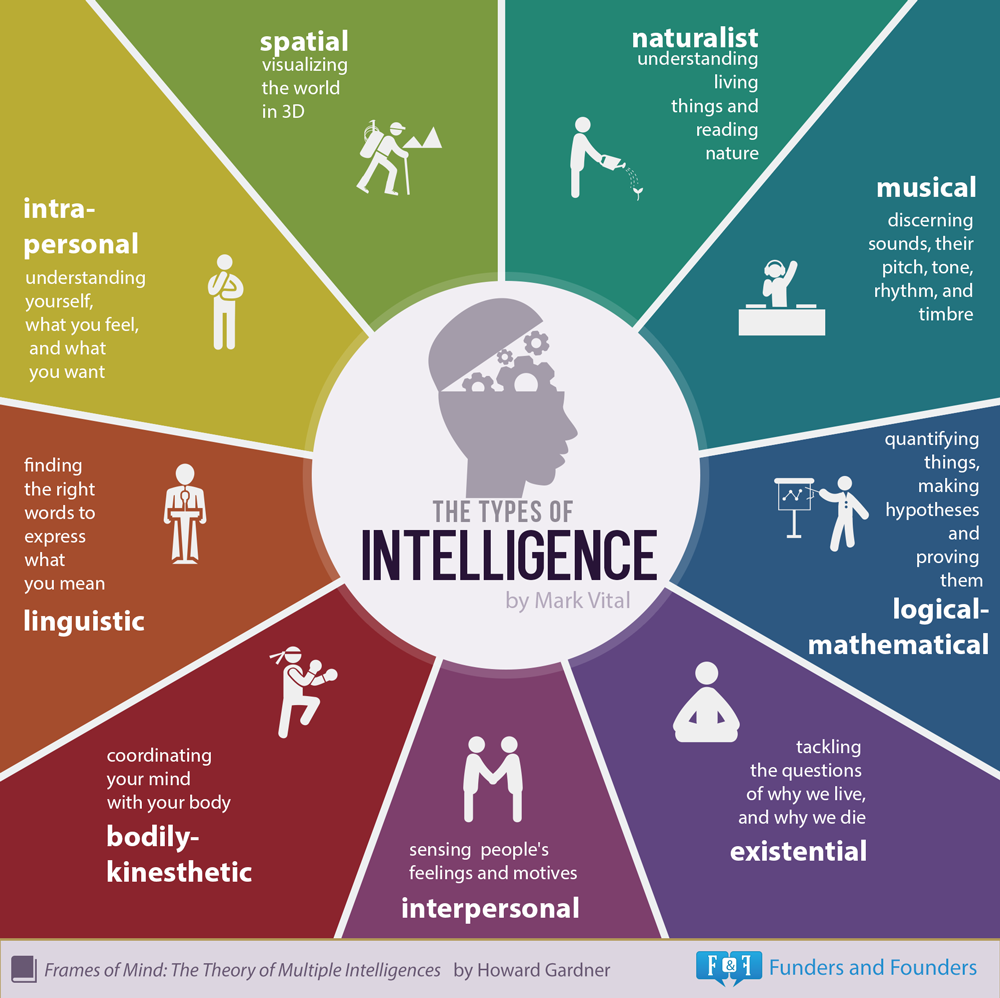Thanks to our educational systems, we’ve long measured intelligence by focusing predominantly on our mathematical and linguistic abilities. However, when it comes to the real world and building your career, there are a lot more types of intelligence that have an impact on our success.
Howard Gardner, Professor of Cognition and Education at Harvard Graduate School of Education, has proposed a new model for human intelligence that incorporates a much wider range of skills. Where do your strengths lie?
The types of intelligence
 Image source: Funders and Founders
Image source: Funders and Founders
- Naturalist: Understanding living things and reading nature.
- Musical: Discerning sounds including their pitch, tone, rhythm and timbre.
- Logical-mathematical: Quantifying things, making hypotheses and proving them.
- Existential: Tackling the questions of why we live and why we die.
- Interpersonal: Sensing people’s feelings and understanding motivations.
- Bodily-kinesthetic: Coordinating your mind with your body.
- Linguistic: Finding the right words to express what you mean.
- Intra-personal: Understanding yourself, what you feel and what you want.
- Spatial: Visualising the world in 3D.
Are these actually soft skills?
Some people question Gardner’s model of intelligence arguing that they represent soft skills as opposed to natural abilities or aptitudes. While you can certainly work on learning and developing these areas, you’re likely to find that you natural excel more in certain ones.
